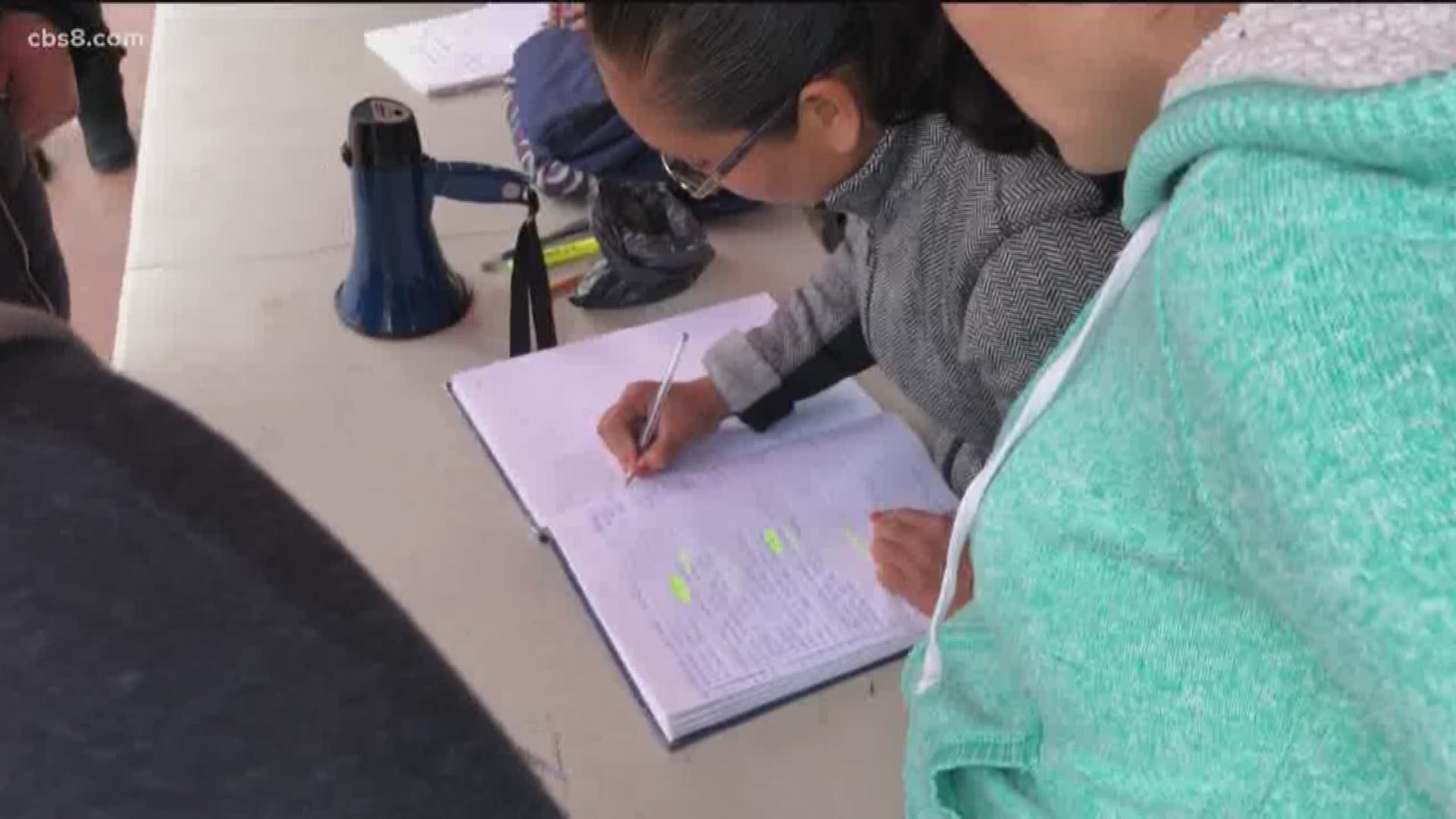TIJUANA, Baja California — Hundreds of families from all over the world are jam-packed into Tijuana shelters as they hope for a chance at the American dream. They’re waiting for their names to be called so they can cross legally into the United States and claim asylum.
Each morning in Tijuana, migrant volunteers set up a tent at the El Chaparral Pedwest crossing on the Mexican side of the border. The volunteers - as best we can tell - are Mexican nationals hoping to shorten their wait to request asylum in the United States. They oversee a mysterious notebook that contains the names of everyone who wants to have their case heard.
The notebook is, in effect, a waiting list for asylum.
Each family is given a number. Every morning volunteers use a bullhorn to call out a select few names and associated numbers. The migrants listen and hope their long wait will finally come to an end. They've waited months to cross into the United States.
The entire process is fraught with controversy. Immigrant rights groups say it's illegal. Border security advocates claim it prevents the U.S. asylum system from being overrun.
Officially, the process is overseen by volunteers and not the Mexican government; although government immigration officials from Groupo Beta answer questions from the crowd.
New arrivals continually show up to place their names in the notebook for the first time to assure their place in line.
Without warning the bullhorn stops announcing names, the crowd disperses, and families return for another long night in the shelters.
Fidelia de la Cruz has been sleeping in a tent for the past month at the Movimiento Juventud 2000 shelter in Tijuana.
“I am sleeping in here in this little house. When it is raining outside, the wind is coming and the floor is very cold,” she said.
It could be another month before Fidelia’s name is called for asylum at the border. She told us she lived in Seattle, Washington, for 15 years before returning to Mexico to visit her sick brother.
The shelter is one of more than a dozen in Tijuana. It's currently home to 30 children and their parents who want asylum. Most of the migrants carry a number on a piece of paper to indicate their place in the notebook.
Father Fidel Rivero brings donations for the families in Tijuana from his parish in Temecula, St. Catherine of Alexandria Catholic Church.
“At least they have a place under the roof where they can feel safe,” he said.
Father Rivero knows all too well what could happen if these families are not granted asylum by the U.S. government.
“If they get rejected, most of them are going to try to cross illegally. That's the reality and it's been happening for many, many, many years,” Father Rivero said.
The border backlog is the result of the U.S. government's metering policy, where only a limited number of asylum seekers are allowed into the United States each day.
On this day, the names of more than 30 migrants were called in Tijuana. Groupo Beta officials loaded the migrants into vans and the few items they have were loaded into a pickup truck.
News 8 followed them for about a mile through the streets of Tijuana. They were let off at the eastern pedestrian crossing at San Ysidro. Near the crossing, officials from Groupo Beta threatened to arrest our reporter and photojournalist if they continued to follow the group any farther.
We watched as the group of migrants proceeded into the United States where U.S. Customs officers were waiting. News 8 also had a camera on the U.S. side of the pedestrian crossing, however.
Exclusive video shows customs officers taking about three dozen asylum seekers into custody in the United States.
Most of the families will be held in the Otay Mesa detention facility for three to five days pending background checks. Some are later returned to Mexico with a court date. Others are released into the United States with a GPS ankle bracelet and a promise to appear in court.
Most asylum seekers with children are bused to a temporary family shelter downtown. Within days, they are flown all over the country to live with sponsor families while they wait for their day in court.

